This article was co-authored by Scott Tobis, MD. Dr. Scott Tobis is a board certified Urologist. With more than seven years of experience, he specializes in treating patients for urologic conditions such as urologic cancers, prostate enlargement, vasectomy, kidney stones, frequent/urgent urination, erectile dysfunction, incontinence, and blood in the urine. Dr. Tobis holds a BS in Cellular and Developmental Biology from The University of California, Santa Barbara, and an MD from Dartmouth Medical School. He completed his internship in General Surgery and residency in Urologic Surgery at the University of Rochester School of Medicine and Dentistry and his fellowship in Urologic Oncology and Robotic Surgery at The City of Hope National Medical Center. Dr. Tobis is a diplomat of the American Board of Urology.
There are 15 references cited in this article, which can be found at the bottom of the page.
wikiHow marks an article as reader-approved once it receives enough positive feedback. In this case, 91% of readers who voted found the article helpful, earning it our reader-approved status.
This article has been viewed 882,292 times.
While it is more common for women to get yeast infections, it is also possible for men to contract a genital yeast infection, usually after having unprotected sex with a partner who is already infected. The infection usually appears on the skin outside the penis. Penile yeast infections affect men who are uncircumcised more than those who are circumcised.[1] This is because a circumcised penis exposes the glans to air, keeping it dry and cool, while yeast requires heat and moisture to grow and survive.
Steps
Treating the Infection
-
1Apply clotrimazole cream. This is a topical antifungal cream used in treating fungal infections.[2] It is used to treat skin infections such as yeast infections, jock itch, ringworm, and athlete's foot. You may find an over-the-counter cream available, but for severe or persistent infections, use a prescription-strength cream.[3]
- A man with penile yeast infection whose skin has hardened can apply one applicator-full of 1% clotrimazole cream on the affected skin of the penis, preferably at bedtime. This should be done once daily for seven consecutive days.
- Side effects may include itching, general skin irritation, peeling, blistering, edema, and erythema.
- Additional antifungal creams used to treat this infection include miconazole and imidazole creams.[4]
-
2Take fluconazole (Diflucan). While topical antifungals are typically the first choice, you may need an oral antifungal medication for persistent or severe infections. Fluconazole is available by prescription only and is the most common oral antifungal prescribed for this condition.[5]
- Common side effects are headache, nausea, and abdominal pain. Less common side effects also include diarrhea, rash, reduced blood levels of potassium, seizures, and a reduced number of white blood cells or blood platelets.[6]
- Nizoral used to be a more popular choice of oral antifungal medication, but it can cause severe liver damage, so doctors typically only prescribe it when other antifungal medications are unavailable or fail to work.[7]
Advertisement -
3Try using organic coconut oil. This is a medically proven antifungal that works on hardened skin by destroying both the nucleus and the plasma of the yeast cell, thereby killing it. You can apply the oil directly onto the affected area.[8]
- It is also a great personal lubricant for sex, while helping to prevent yeast infections from being transferred from partner to partner.
- Additionally, the man with the penile yeast infection can consume a teaspoonful of the oil before every meal until the infection subsides.
-
4Use organic Mediterranean oregano oil. This is an effective antifungal for penile yeast infection, especially when the skin has hardened.[9] The oil is applied directly to the infected penile skin to penetrate the hardened skin and kill the yeast cells.
- Be aware that organic Mediterranean oregano oil should be diluted with either coconut or olive oil in a ratio of 2:1 to prevent it from burning the skin.
-
5Make a paste of potassium sorbate. This is a substance used to stop yeast growth when making beer and can be applied when the skin has hardened due to yeast infection.[10]
- In treating penile yeast infection, potassium sorbate is very helpful in stopping and preventing yeast from growing on the penis.
- Just use a little water to make a paste, then apply the paste directly onto the infected skin of the penis.
-
6Mix a lemon juice treatment. Lemon juice is packed with vitamin C which helps to restore the skin's pH. This is key in the treatment of penile yeast infections because it creates an unfriendly environment for yeast cells to thrive.
- A man with penile yeast infection can make a treatment solution by mixing 2 tablespoonfuls of lemon juice with 1 quart of warm water. The affected area of the penis is then soaked in the solution.
- This should be done three times daily until the penis is healed.
-
7Drink cranberry juice. Cranberry juice is a great penile yeast infection remedy when the skin has hardened because of the infection. It works by preventing the yeast infection from turning into a bladder infection.[11] Additionally, it boosts the body's levels of good acidophilus bacteria.
- A man with a penile yeast infection should consume cranberry juice twice daily until the symptoms fade away.
-
8Keep the skin dry. A moist environment encourages the growth of yeast, therefore, men should ensure that their genital area is kept as dry and cool as possible by wiping with clean, dry towel after taking a bath.[12]
- It is also recommended that you remove excess hair because this dampens the genital area, creating a sweaty and humid condition perfect for a thriving yeast colony.
Understanding Penile Yeast Infections
-
1Recognize the symptoms of a penile yeast infection. The major symptoms of a penile yeast infection are as follows:[13]
- Soreness and irritation: A man with a penile yeast infection will experience a reddish-colored rash on the head of the penis.[14] There may be an itching and burning sensation on the tip of the penis, which can be very irritating. When passing urine, the burning sensation may be more intense.
- Discharge: A man with a penile yeast infection may notice a white substance coming from the penis, similar to the discharge from a vaginal infection. The discharge may have an unpleasant odor.
- Discomfort during intercourse: A man with a penile yeast infection may experience discomfort during sexual intercourse, due to the soreness, irritation, and inflammation of the penis.
-
2Understand the causes and risk factors. The most common causes and risk factors for penile yeast infection include:[15]
- Sexual transmission: Just like sexually transmitted infections, a yeast infection can be transmitted through sexual contact. A man can contract penile yeast infection by having unprotected intercourse with a yeast-infected woman.
- Antibiotics: Although it is less common than sexual transmission, a man can get penile yeast infection through prolonged use of antibiotics.
- Diabetes: Yeast thrives well in glucose, therefore men with diabetes are more susceptible to yeast infections, due to their elevated blood sugars.
- Foods: A typical American diet increases the chances of a man developing penile yeast infection. Wheat, barley, oats, peanuts, red apples, and corn encourage yeast growth in the body because of their high glucose content, which is food for yeast.
- Nonoxynol-9: This is a sperm-killing drug contained in condom lubricants. This substance has been linked to causing yeast infections in men.
-
3See your doctor for diagnosis. If you suspect that you have a penile yeast infection, it's important that you see your doctor instead of trying to diagnose and treat yourself. Even though many home remedies and over-the-counter medications exist, your doctor can determine the best option for your specific health needs and rule out the possibility of another condition with similar symptoms, such as some STIs.[16] [17]
- If treated improperly, a penile yeast infection can lead to complications like scarring, swollen glands, and painful urination. Yeast infections can also enter the bloodstream if the infection has time to spread.[18]
Expert Q&A
-
QuestionWhat kills male yeast infection?
 Scott Tobis, MDDr. Scott Tobis is a board certified Urologist. With more than seven years of experience, he specializes in treating patients for urologic conditions such as urologic cancers, prostate enlargement, vasectomy, kidney stones, frequent/urgent urination, erectile dysfunction, incontinence, and blood in the urine. Dr. Tobis holds a BS in Cellular and Developmental Biology from The University of California, Santa Barbara, and an MD from Dartmouth Medical School. He completed his internship in General Surgery and residency in Urologic Surgery at the University of Rochester School of Medicine and Dentistry and his fellowship in Urologic Oncology and Robotic Surgery at The City of Hope National Medical Center. Dr. Tobis is a diplomat of the American Board of Urology.
Scott Tobis, MDDr. Scott Tobis is a board certified Urologist. With more than seven years of experience, he specializes in treating patients for urologic conditions such as urologic cancers, prostate enlargement, vasectomy, kidney stones, frequent/urgent urination, erectile dysfunction, incontinence, and blood in the urine. Dr. Tobis holds a BS in Cellular and Developmental Biology from The University of California, Santa Barbara, and an MD from Dartmouth Medical School. He completed his internship in General Surgery and residency in Urologic Surgery at the University of Rochester School of Medicine and Dentistry and his fellowship in Urologic Oncology and Robotic Surgery at The City of Hope National Medical Center. Dr. Tobis is a diplomat of the American Board of Urology.
Board Certified Urologist Washing the area completely, then thoroughly drying it, followed by application of a topical antifungal agent can rapidly resolve this condition.
Washing the area completely, then thoroughly drying it, followed by application of a topical antifungal agent can rapidly resolve this condition. -
QuestionWhat to do if a man gets a yeast infection?
 Scott Tobis, MDDr. Scott Tobis is a board certified Urologist. With more than seven years of experience, he specializes in treating patients for urologic conditions such as urologic cancers, prostate enlargement, vasectomy, kidney stones, frequent/urgent urination, erectile dysfunction, incontinence, and blood in the urine. Dr. Tobis holds a BS in Cellular and Developmental Biology from The University of California, Santa Barbara, and an MD from Dartmouth Medical School. He completed his internship in General Surgery and residency in Urologic Surgery at the University of Rochester School of Medicine and Dentistry and his fellowship in Urologic Oncology and Robotic Surgery at The City of Hope National Medical Center. Dr. Tobis is a diplomat of the American Board of Urology.
Scott Tobis, MDDr. Scott Tobis is a board certified Urologist. With more than seven years of experience, he specializes in treating patients for urologic conditions such as urologic cancers, prostate enlargement, vasectomy, kidney stones, frequent/urgent urination, erectile dysfunction, incontinence, and blood in the urine. Dr. Tobis holds a BS in Cellular and Developmental Biology from The University of California, Santa Barbara, and an MD from Dartmouth Medical School. He completed his internship in General Surgery and residency in Urologic Surgery at the University of Rochester School of Medicine and Dentistry and his fellowship in Urologic Oncology and Robotic Surgery at The City of Hope National Medical Center. Dr. Tobis is a diplomat of the American Board of Urology.
Board Certified Urologist Talk with your doctor or pharmacist for recommendations of a safe topical treatment. If it does not begin to resolve within a few days of treatment, a medical professional should evaluate the condition.
Talk with your doctor or pharmacist for recommendations of a safe topical treatment. If it does not begin to resolve within a few days of treatment, a medical professional should evaluate the condition. -
QuestionHow do you know if a man has a yeast infection?
 Scott Tobis, MDDr. Scott Tobis is a board certified Urologist. With more than seven years of experience, he specializes in treating patients for urologic conditions such as urologic cancers, prostate enlargement, vasectomy, kidney stones, frequent/urgent urination, erectile dysfunction, incontinence, and blood in the urine. Dr. Tobis holds a BS in Cellular and Developmental Biology from The University of California, Santa Barbara, and an MD from Dartmouth Medical School. He completed his internship in General Surgery and residency in Urologic Surgery at the University of Rochester School of Medicine and Dentistry and his fellowship in Urologic Oncology and Robotic Surgery at The City of Hope National Medical Center. Dr. Tobis is a diplomat of the American Board of Urology.
Scott Tobis, MDDr. Scott Tobis is a board certified Urologist. With more than seven years of experience, he specializes in treating patients for urologic conditions such as urologic cancers, prostate enlargement, vasectomy, kidney stones, frequent/urgent urination, erectile dysfunction, incontinence, and blood in the urine. Dr. Tobis holds a BS in Cellular and Developmental Biology from The University of California, Santa Barbara, and an MD from Dartmouth Medical School. He completed his internship in General Surgery and residency in Urologic Surgery at the University of Rochester School of Medicine and Dentistry and his fellowship in Urologic Oncology and Robotic Surgery at The City of Hope National Medical Center. Dr. Tobis is a diplomat of the American Board of Urology.
Board Certified Urologist Penile yeast infections can present with a painful, red, itchy rash sometimes associated with a white discharge. This is usually at the head of the penis and is common in uncircumcised men.
Penile yeast infections can present with a painful, red, itchy rash sometimes associated with a white discharge. This is usually at the head of the penis and is common in uncircumcised men.
Warnings
- Once the skin of the penis is infected by yeast it hardens, because the skin cells macrophage as a defense against the infection. This hardened skin may crack during an erection, which is extremely painful.⧼thumbs_response⧽
- If ignored, the yeast infection can extend to the urethra; at this point medical treatment should be sought as this can cause serious complications such as lower or upper tract obstruction.⧼thumbs_response⧽
References
- ↑ Scott Tobis, MD. Board Certified Urologist. Expert Interview. 26 August 2021.
- ↑ https://www.netdoctor.co.uk/medicines/infection/a7916/canesten-thrush-external-cream-clotrimazole/
- ↑ Scott Tobis, MD. Board Certified Urologist. Expert Interview. 26 August 2021.
- ↑ https://www.healthline.com/health/mens-health/penile-yeast-infection#treatment
- ↑ https://www.healthline.com/health/mens-health/thrush-in-men
- ↑ https://www.medicinenet.com/fluconazole/article.htm#what_are_the_side_effects_of_diflucan_fluconazole
- ↑ https://www.drugs.com/nizoral.html
- ↑ https://www.medicalnewstoday.com/articles/317935.php
- ↑ https://www.medicalnewstoday.com/articles/317935.php
- ↑ https://www.ncbi.nlm.nih.gov/pubmed/1078608
- ↑ https://www.webmd.com/women/news/20100823/cranberry-juice-fights-urinary-tract-infection-quickly
- ↑ https://www.medicalnewstoday.com/articles/246615.php
- ↑ https://www.webmd.com/men/qa/what-are-the-symptoms-of-yeast-infections-in-men
- ↑ Scott Tobis, MD. Board Certified Urologist. Expert Interview. 26 August 2021.
- ↑ https://www.onemedical.com/blog/get-well/male-yeast-infection
- ↑ Scott Tobis, MD. Board Certified Urologist. Expert Interview. 26 August 2021.
- ↑ https://www.healthline.com/health/mens-health/thrush-in-men#diagnosis
- ↑ https://www.healthline.com/health/mens-health/penile-yeast-infection#complications
- Sommers, M. A. (2008). Yeast infections, trichomoniasis, and toxic shock syndrome. New York: Rosen Central.
About This Article
To treat a penile yeast infection, buy Nizoral from a drugstore and take 1 200 milligram tablet a day. If your infection doesn’t clear up, try increasing the dose to 2 tablets a day. Alternatively, apply clotrimazole cream to your penis, which is a topical antifungal cream. While your infection is healing, make sure you keep your skin cool and dry to help kill the yeast. You should also avoid sexual contact until your infection has cleared up so it doesn’t spread to your partner. For more tips, including how to treat your penile infection with organic coconut oil, read on!

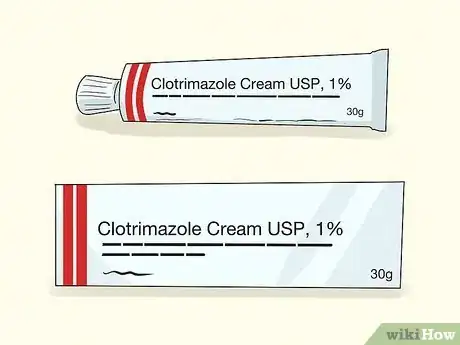
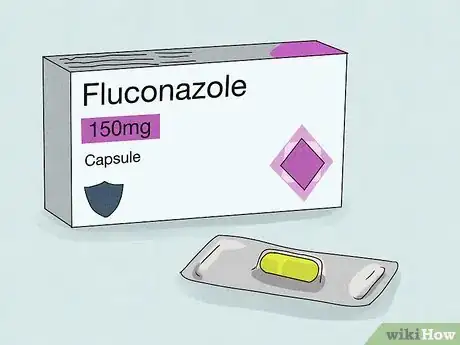
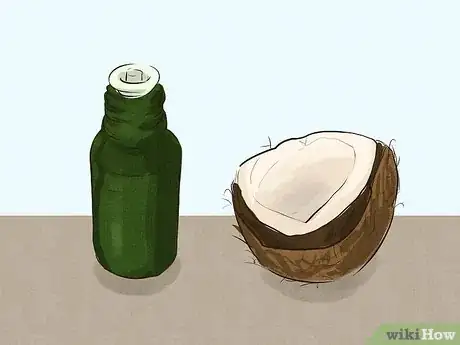
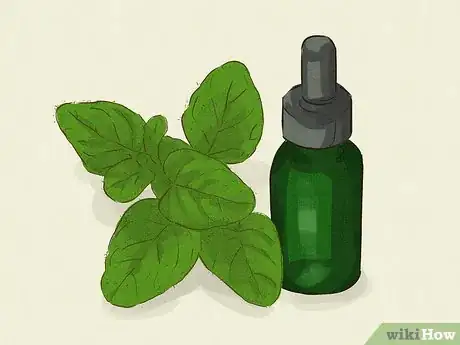
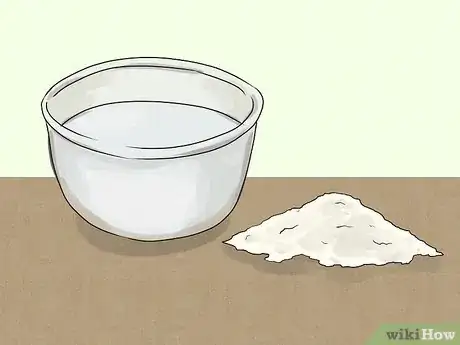
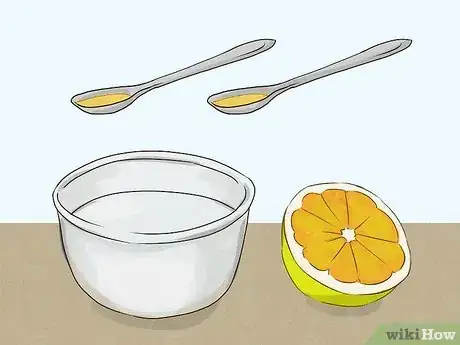

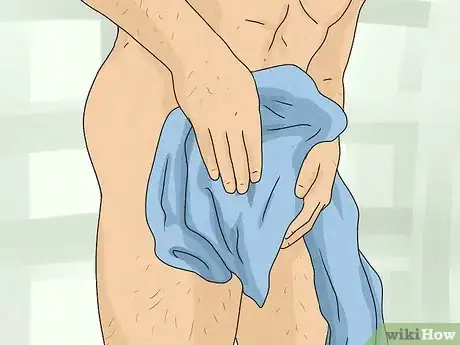
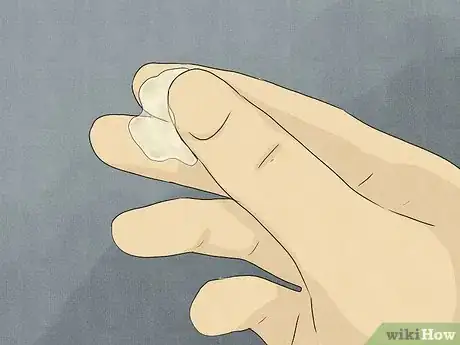
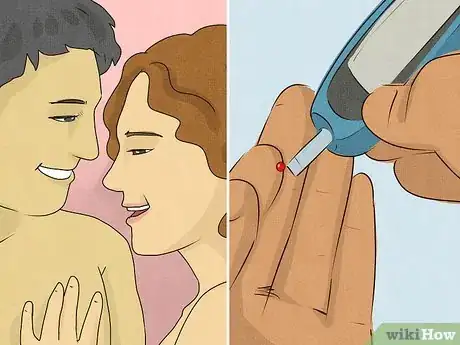


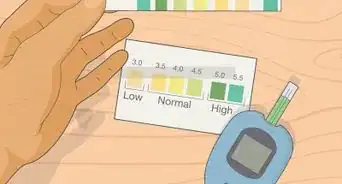
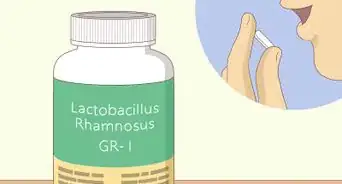



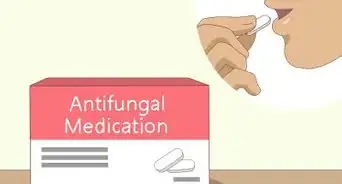
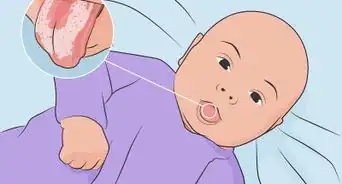
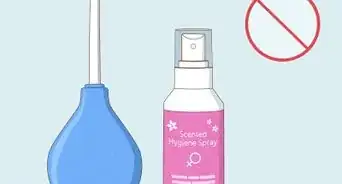
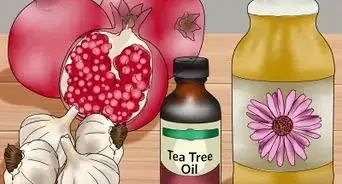

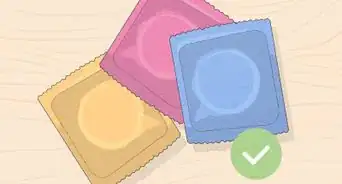

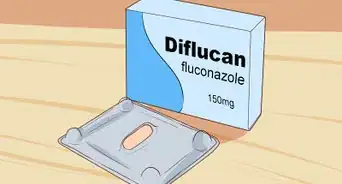










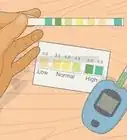
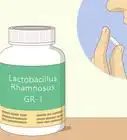




































Medical Disclaimer
The content of this article is not intended to be a substitute for professional medical advice, examination, diagnosis, or treatment. You should always contact your doctor or other qualified healthcare professional before starting, changing, or stopping any kind of health treatment.
Read More...